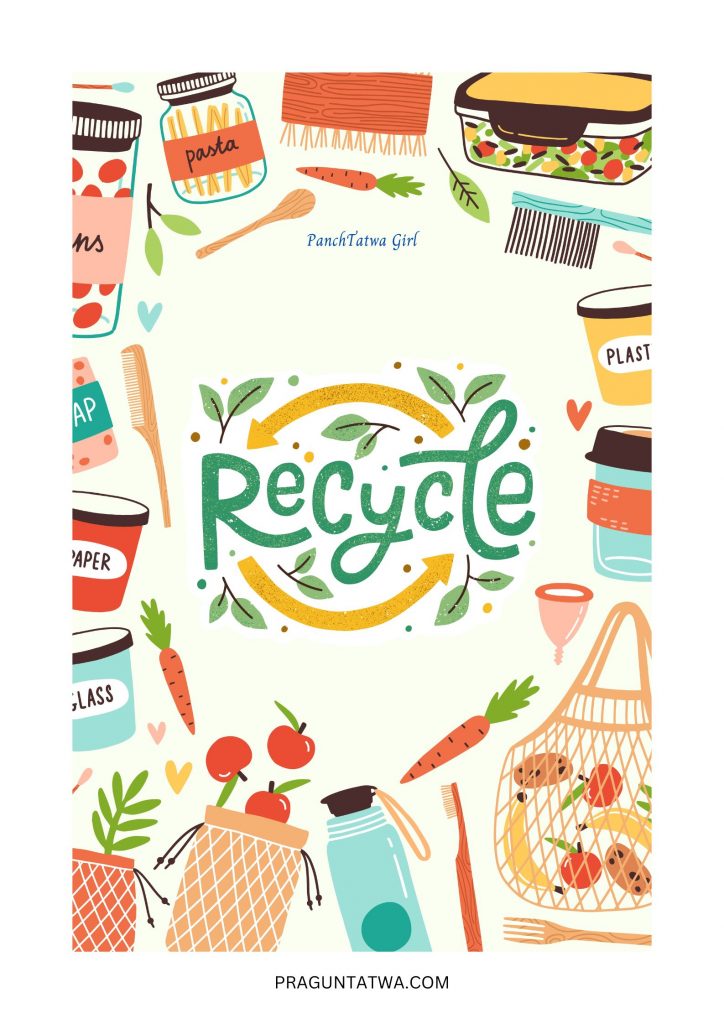Recycling into the Future: A Sustainable World

Global Recycling Day
Global Recycling Day is an international awareness day that is celebrated annually on March 18th to promote the importance of recycling and encourage people to take action to improve waste management practices. It is a day to raise awareness about the benefits of recycling, including reducing waste, conserving resources, and protecting the environment.
The theme for Global Recycling Day 2023 is “Recycling into the Future: A Sustainable World.” The focus is on the importance of sustainable practices in recycling to ensure that future generations can continue to benefit from the resources we use today.
On this day, individuals and organizations around the world are encouraged to take action to reduce waste and increase recycling. This can include participating in community clean-up events, promoting recycling programs, educating others about the importance of recycling, and reducing personal waste.
Global Recycling Day was established by the Global Recycling Foundation in 2018 and has since been recognized by the United Nations. The day is an opportunity to recognize the impact that recycling can have on our planet and to inspire people to take action to create a more sustainable future.
Recycling
Recycling is the process of converting waste materials into new materials or products. This involves collecting and sorting materials that would otherwise be discarded as trash, and then processing and transforming them into raw materials that can be used in the production of new goods.
Recycling is an important part of waste management and environmental conservation efforts, as it reduces the amount of waste that ends up in landfills, conserves natural resources, and reduces energy consumption and greenhouse gas emissions associated with the extraction and processing of raw materials.
Some common materials that are recycled include paper, cardboard, plastic, glass, and metal. Recycling practices and programs vary by region and country, but typically involve curbside pickup or drop-off locations where residents can dispose of their recyclable materials.
To support recycling efforts, it’s important to properly sort and clean materials before placing them in recycling bins or dropping them off at recycling centers. Additionally, reducing consumption and reusing items can also help to minimize waste and the need for new materials.
circular economy
The circular economy is an economic system that focuses on eliminating waste and maximizing the use of resources. This involves designing products that can be reused or recycled and creating closed-loop systems where waste from one process becomes a resource for another. By embracing the circular economy, we can create a more sustainable future where resources are used more efficiently and waste is minimized.
Innovations in recycling technology can help to make recycling more efficient and effective. For example, new recycling technologies are being developed that can recycle plastics that were previously considered unrecyclable. By investing in research and development of new recycling technologies, we can create a more sustainable future.
Sustainable product design involves creating products that are designed to be recycled or reused at the end of their life cycle. By supporting sustainable product design, we can create a future where products are designed with the environment in mind, and where waste is minimized.

Sustainable practices in recycling
Sustainable practices in recycling refer to the methods and processes that are environmentally responsible and economically viable. The aim is to create a circular economy that reduces waste and maximizes the use of resources. Some examples of sustainable practices in recycling include:
- Source separation: Separating waste at the source ensures that recyclable materials are kept separate from non-recyclable waste. This makes it easier to recycle and reduces contamination.
- Recycling infrastructure: Building and maintaining recycling infrastructure such as recycling centers, waste-to-energy facilities, and composting facilities promotes efficient and effective waste management.
- Extended producer responsibility: This is a policy that makes manufacturers responsible for the environmental impact of their products throughout their lifecycle. This encourages manufacturers to design products that are easier to recycle and reduce waste.
- Education and awareness: Educating individuals and communities about the importance of recycling and how to recycle properly can promote behavior change and increase recycling rates.
- Recycling innovation: Developing and implementing new recycling technologies and practices that are more efficient and cost-effective can help reduce waste and conserve resources.
- Reduce, reuse, and recycle: The waste hierarchy suggests that reducing consumption and reusing products are more sustainable practices than recycling. By reducing the amount of waste we produce, we can reduce the demand for recycling.
Overall, sustainable practices in recycling aim to minimize waste, conserve resources and protect the environment for future generations.
Follow and have a habit of Recycling day. Recycling day is an important part of waste reduction efforts, as it allows for the proper disposal and recycling of materials that can be reused instead of ending up in landfills. Some common items that are typically recycled include paper, cardboard, plastic, glass, and metal.
Overall, recycling is a key part of creating a sustainable world. By embracing the circular economy, increasing recycling rates, innovating new recycling technologies, educating the public, and supporting sustainable product design, we can create a more sustainable future for ourselves and for future generations. Recycling is an important part of creating a sustainable world. It helps to reduce waste, conserve natural resources, and protect the environment. As we move into the future, there are several ways in which recycling can continue to play a vital role in creating a more sustainable world.
From my Green Bag –
Support, share, and try to bring that one change in your life toward a greener tomorrow. Do check out my other posts on Sustainable Conscious living, a step towards a healthier planet. Which covers easy ways to save water, save energy, conservation at the home level, a little bit to heal Mother Earth, and much more. Listen to some wonderful people in eco-friendly talks in episodes of Green Talks.
Looking for an Eco-friendly Life? Want to change a habit towards more sustainable living? Then join me in this mission to raise awareness and adopt more sustainable practices. Find 30 ways to Earth-friendly living And Reasons to refuse plastic bags.
I’m just a simple eco-conscious human requesting everyone to love this planet and put in that little effort toward a better and greener tomorrow. Learning to be more environmentally friendly is easier than you think. You don’t have to jump in by changing everything, start small to make the changes more sustainable and a part of your normal life.








Recent Comments